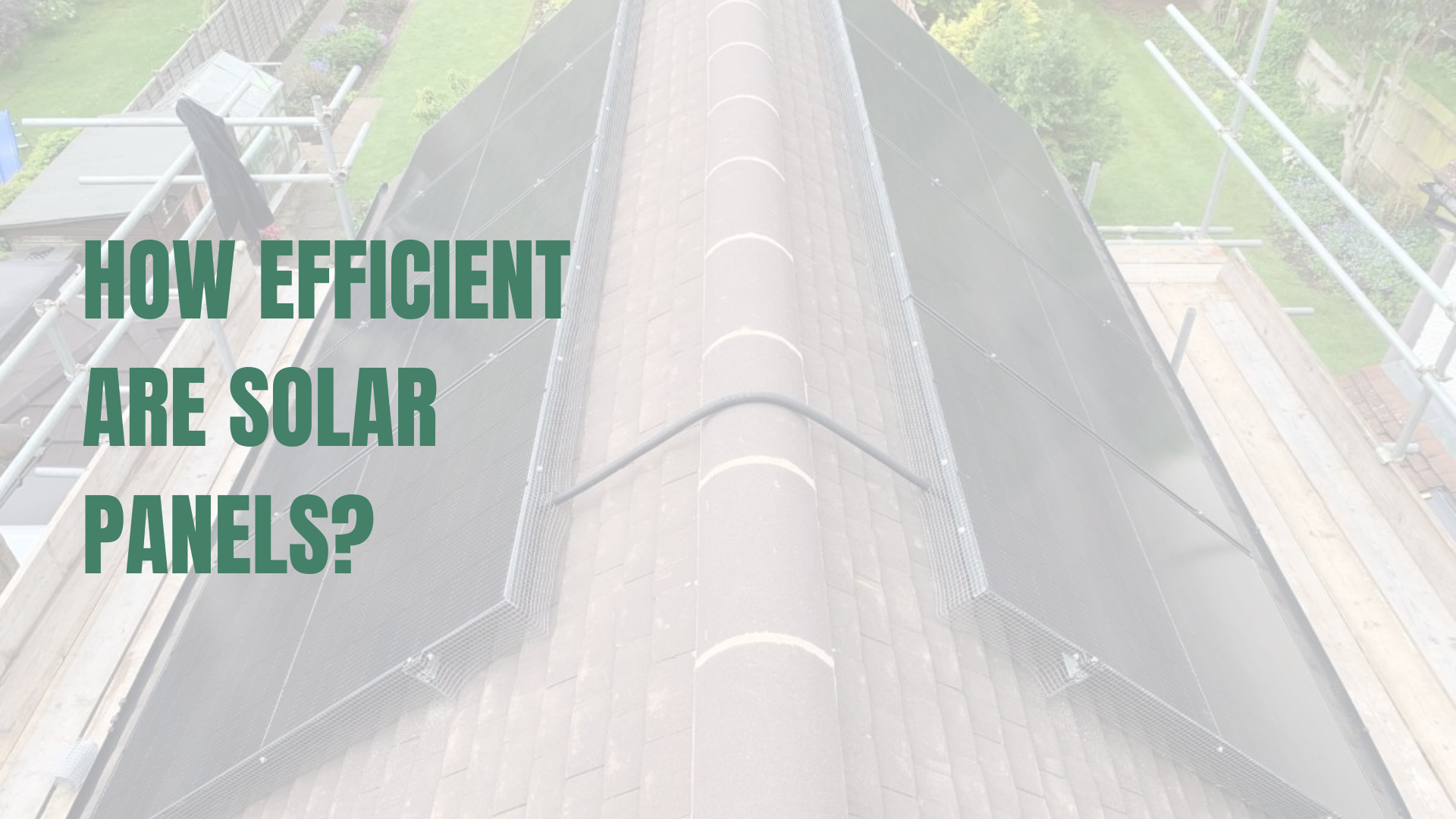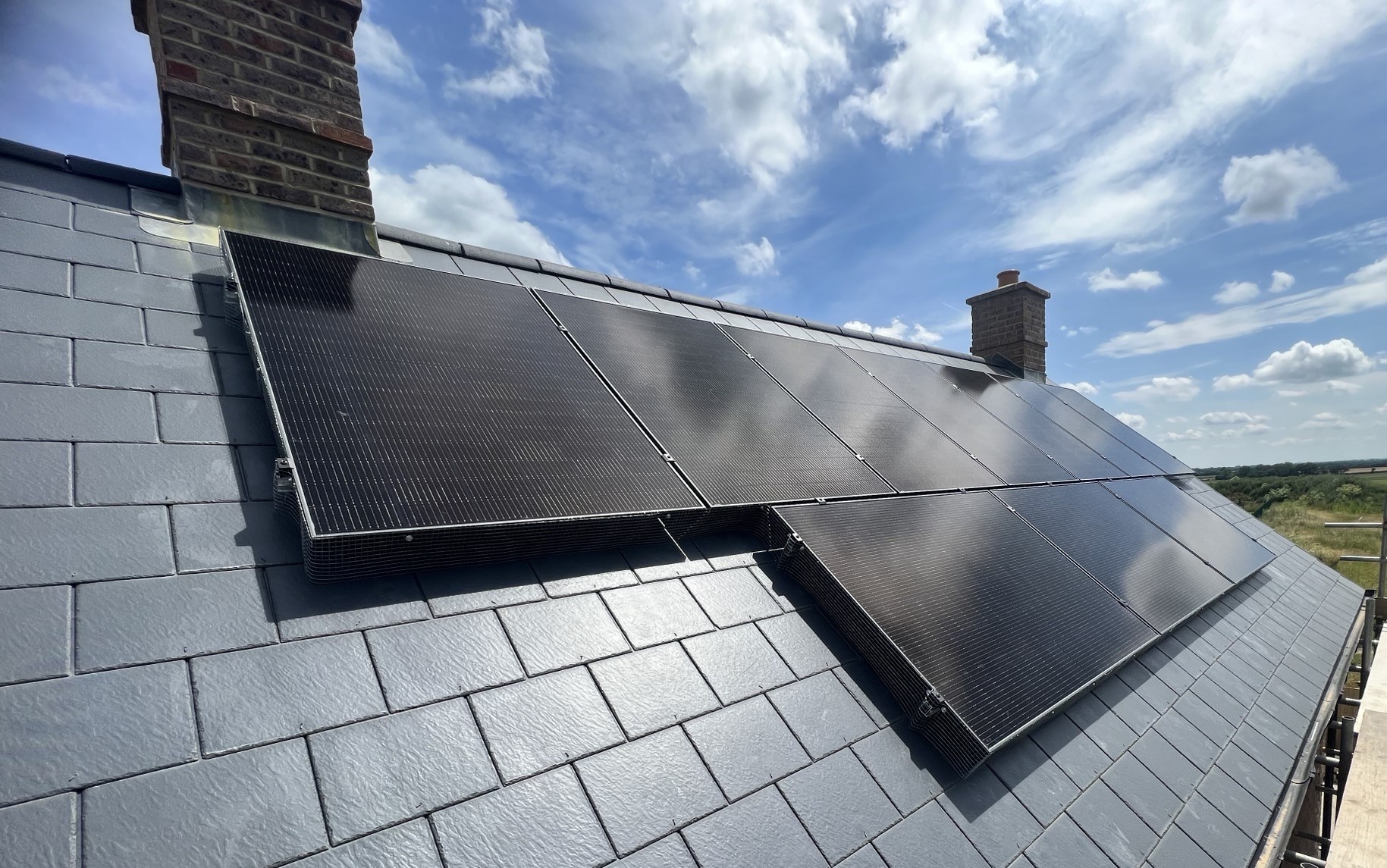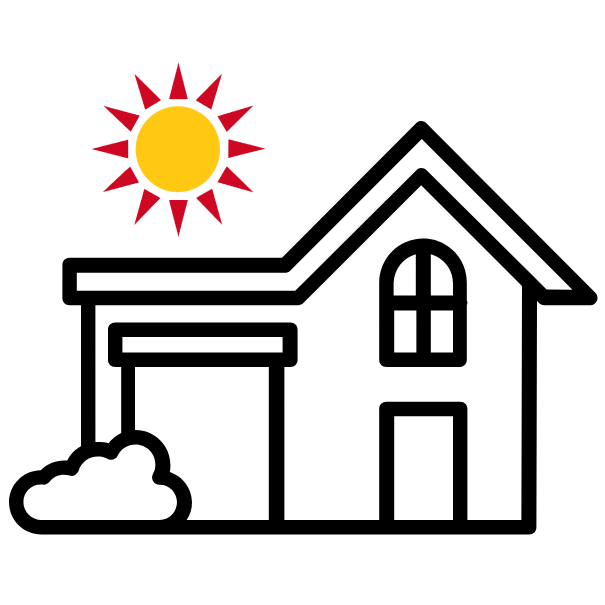Understanding solar panel efficiency is key to maximising the energy your solar PV system can generate. With energy prices rising, homeowners across the South East and East Anglia are increasingly investing in solar to reduce bills and their carbon footprint. In this guide, we’ll explore the factors affecting solar panel efficiency, the types of solar panels available and how to get the most from your solar PV system.
What Affects Solar Panel Efficiency?
The time of year and day can affect your solar panel efficiency, which in turn effect the amount of electricity you generate, spring and summer have longer, brighter days while autumn brings cooler, crisp mornings, and winter shorter days with the sun lower in the sky. Weather conditions, temperature and environmental conditions also all affect the efficiency of your solar panels. The optimum temperature for solar panels is 1-20°C, but even at 85°C solar panels still generate at 81% of their peak output.
Solar Cell Efficiency
Solar panels are made from photovoltaic (PV) cells, which have seen significant improvements over the last 25 years. Efficiency depends on the cell structure and base material, measured by the maximum conversion rate under ideal conditions. In other words, the better the PV cells, the more electricity your panels will generate.
Solar panel efficiency is measured under Standard Test Conditions (STC), which is cell temperature at 25°C, solar irradiance at 1000 W/m² and air mass at 1.5. In reality, solar panels rarely operate under perfect conditions, so efficiency will vary daily based on environmental conditions and installation.
Environmental Factors
- Temperature – solar panels perform best when the air temperature is below 25°C, cooler temperatures can actually boost efficiency, making sunny winter days across Essex and the South East ideal for electricity generation.
- Snow – light reflection from snow can help efficiency, however, once snow exceeds 5cm, your panels will stop generating until the snow has been cleared.
- Ice – depending on thickness, ice accumulation can reduce efficiency by 25-100% until cleared.
- Wind – light wind can cool panels, improving efficiency, very strong wind however has the opposite effect and can reduce output minimally.
- Shading and debris – trees, buildings, dust and dirt can reduce solar efficiency by up to 50% if they block sunlight successfully getting to your solar panels. A SolarEdge power optimised system can mitigate these effects if any of them are an issue for part of your solar array.
Panel Orientation and Placement
In the South East and East Anglia, it’s not unheard of for some areas to have over 1,800 hours of sunshine per year (compared to the national average of only 1,500 hours per year). To take full advantage of the additional sunlight hours we get in the South East and East Anglia correct installation and placement of your solar panels is important. Solar panels perform best on a south facing roof at an angle of 20-40 degrees, that doesn’t mean however, that a roof that is south-east facing or has an east-west split can’t generate enough electricity for to be viable. They will still produce enough electricity, just at a slightly lower rate.
Solar Panel Degradation
Like all technology, solar panels gradually lose efficiency. On average, most solar panels degrade by about 0.5% per year. Most manufacturers offer a 25-year warranty covering performance.
Types of Solar Panels and Their Efficiency
Different types of solar panel technology have different levels of efficiency.
| Type | Efficiency Range (%) |
| Monocrystalline | 20-25% |
| Polycrystalline | 15-22% |
| Thin-film | 15-22% |
At SolarTherm UK, we mainly install Bovill.tech 410W all black monocrystalline solar panels that have a 21.25% efficiency and come with a 99-year warranty on performance.
Why Efficiency Matters
A more efficient solar PV system produces more electricity in less time, reducing reliance on the grid and lowering your electricity bills. If you are limited on space, you can install more efficient solar panels to overcome the smaller roof space.
At SolarTherm UK, we balance the efficiency of your solar panels with your budget and the return on investment. Every solar PV system we install is tailored to the property, usage, budget and future energy requirements.
Ready to Boost Your Energy Efficiency?
If you’re looking to maximise your solar output or have questions about the best solar panels for your South East or East Anglian home, our friendly expert team at SolarTherm UK is ready to help. We have already helped thousands of households across the region save on their energy bills with a solar PV installation over the last 15 years.
Contact SolarTherm UK today for a free no-obligation quote and design. No hard sell, just honest, expert advice.
Your home. Your energy. Your future.





